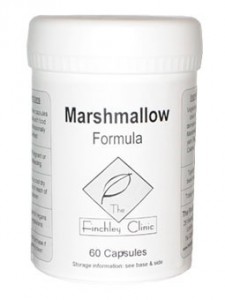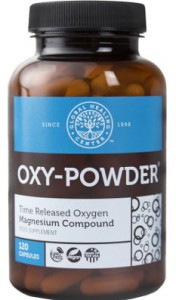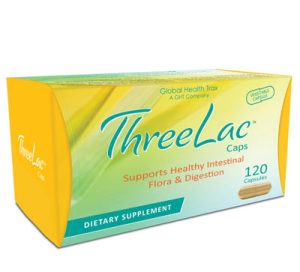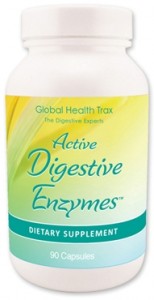If you live in the United States and, while watching, hearing or reading the news, you perk up whenever health issues are mentioned, you’ll surely be aware of the drug-resistant illness that in the last few weeks has infected more than 75 people in the US1. Affecting – and potentially damaging – the bloodstream, wounds and ears, it’s predicted (in the very worst case scenario) to cause organ failure, especially for the most ‘at risk’ category; among them diabetics, premature babies and those on paralysis or with weak immunity1.
That’s because it’s an outbreak of Candida auris, one of the broad family of Candida yeasts, many of which (should they get out of control when inside the human body and result in ‘Candida overgrowth’) can cause serious ongoing health issues. In fact, since 2013, outbreaks of Candida auris have been reported in 14 separate countries, including the UK – yes, it’s not just a nasty thing confined to the US, unfortunately1.
Candida – the beastly yeast?
Highlighting these recent infections of this particularly unpleasant Candida strain shows just how common it doing us ill actually is – in fact, so common is Candida that on occasions most people probably don’t realise it’s the cause for them feeling below par or very ill. A wide array of Candida species (the most common of which is probably Candida alcibans2, 3) can cause us real trouble if they’re allowed free roam in our bodies – potentially fungal infections like candidiasis, candidemia and oral flush4.
Yet the truth is that when the Candida levels in your body (most pertinently in the skin and the mucous membranes of the gut and vagina) are kept in check, thanks to a healthy immune system, Candida is very rarely a problem. Indeed, different strains of Candida are among the organisms that a new-born baby will acquire from their mother via birth or through breastfeeding or early food5 – moreover, one specific species, Candida cylindracea, supports effective digestion owing to the positive enzymatic properties and pH levels it possesses6.
Candida overgrowth – symptoms and causes
However, should Candida be allowed to run riot in parts of your body and multiply to the extent it results in overgrowth, perhaps the most immediate consequence is that it’ll imbalance and disrupt the body’s gut microbiota. This is when the balance of bacteria in the intestines tips hazardously in favour of ‘bad bacteria’ and harmful micro-organisms like Candida over ‘good bacteria’ and health-preserving probiotics.
As a result of this then, Candida overgrowth effects can regularly include gastrointestinal (and gastrointestinal-related) issues like abdominal pains, indigestion and excessive gas; irritability, tiredness and trouble concentrating; anxiety and mood swings; skin infections, eczema, psoriasis and acne; oral or vaginal thrush7 and promotion of leaky gut syndrome8. Moreover, overgrowth can see Candida-derived problems occur all over the body, thanks to the yeast potentially infecting the blood, genitals, skin and the throat and oesophagus9, 10.
But what about the causes? Well, some of the most common and guilty of Candida promoters are:
- Weakened immunity – unfortunately, a large number of medical conditions and medications can weaken the immune system11, 12, 13
- Antibiotics – attack all bacteria (‘good’ as well as ‘bad’), thus upsetting the gut microbiota balance and allowing Candida to thrive4
- Diabetes – a hallmark of diabetes, high blood glucose (hyperglycaemia), inhibits the immune system and the digestive and urinary systems4, 14
- Alcohol – chronic alcohol drinking can lead to the growth of certain Candida species
- Other potential causes include kidney failure and haemodialysis treatment; organ transplantation; poor diet and pregnancy15, 16
Tackling Candida
Thankfully, should you suspect – and especially if you have it confirmed by a medical professional – that you’re suffering from Candida overgrowth, there’s certainly something you can do about it. Your best advised treatment is a natural remedy – and why not in the shape of easy-to-take and highly effective supplements? All three of the following and many more are available through The Finchley Clinic (indeed, check out the ‘Candida Cleansing’ section of our website for all the Candida supplements we sell)…

Threelac – a probiotic that’s revered for managing candida and yeast infections, containing three forms of spore-forming lactic acid bacteria that work to purge your intestinal tract of parasites and dysbiotic microorganisms; also highly recommended is its sister product Fivelac.

Active Digestive Enzymes – actually designed to be taken in conjunction with Threelac and may help a Candida-focused cleanse by improving food absorption to reduce the amount of ‘food’ such parasites feed on in the tract.

Thyme Formula and Thyme Formula A – botanical products specifically designed to help manage Candida overgrowth throughout the body.
References:
1. Whyte C. ‘Deadly, drug-resistant Candida yeast infection spreads in the US’. newscientist.com. https://www.newscientist.com/article/2125283-deadly-drug-resistant-candida-yeast-infection-spreads-in-the-us/. 20 March 2017.
2. Kim J. and Sudbery P. ‘Candida albicans, a major human fungal pathogen’. J Microbiol. April 2011; 49 (2): 171-7.
3. ‘Candidiasis’. Centers for Disease Control and Prevention. https://www.cdc.gov/fungal/diseases/candidiasis/. Last update: 6 Oct 2016.
4. ‘Candida infection of the skin’. Medline Plus. https://medlineplus.gov/ency/article/000880.htm. Review date: 12 July 2014.
5. Jenkinson H. F. and Douglas L. J. ‘Chapter 18 Interactions between Candida Species and Bacteria in Mixed Infections. Polymicrobial Diseases’. Washington (DC): ASM Press. 2002.
6. Fieker A., Philpott J. and Armand M. ‘Enzyme replacement therapy for pancreatic insufficiency: present and future’. Clin Exp Gastroenterol. 2011; 4: 55–73.
7. Global Health Trax. ghthealth.com. 2016.
8. Schulz J. and Sonnenborn U. ‘Yeasts in the Gut: From Commensals to Infectious Agents’. Dtsch Arztebl Int. Dec 2009. 106 (51-52): 837–842.
9. ‘Yeast Infections’. Medline Plus. https://medlineplus.gov/yeastinfections.html.
10. Aubyn G. and Tagoe D. ‘Prevalence of vaginal infections and associated lifestyles of students in the University of Cape Coast, Ghana’. Asian Pac J Trop Dis. Aug 2013; 3(4): 267–270.
11. Maksymiuk A. W., Thongprasert S., Hopfer R., Luna M., Fainstein V. and Bodey G. P. ‘Systemic candidiasis in cancer patients’. Am J Med. Oct 1984; 77 (4D): 20-7.
12. Fichtenbaum C. and Aberg J. ‘Candidiasis and HIV’. HIV InSite. http://hivinsite.ucsf.edu/InSite?page=kb-00&doc=kb-05-02-03. Feb 2006.
13. ‘Medications that Weaken Your Immune System and Fungal Infections’. Centers for Disease Control and Prevention. https://www.cdc.gov/fungal/infections/immune-system.html. Last update: 25 Jan 2016.
14. Casqueiro J., Casqueiro J. and Alves C. ‘Infections in patients with diabetes mellitus: A review of pathogenesis’. Indian J Endocrinol Metab. Mar 2012; 16 (Suppl1): S27–S36.
15. ‘Invasive Candidiasis Risk & Prevention’. Centers for Disease Control and Prevention. https://www.cdc.gov/fungal/diseases/candidiasis/invasive/risk-prevention.html. Last update: 2 March 2016.






